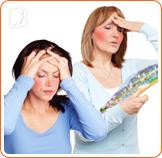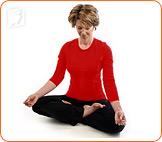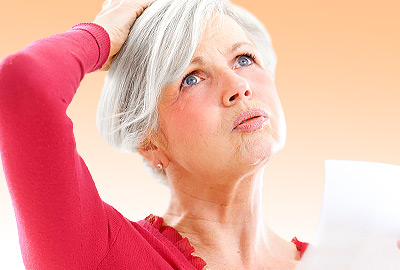Hot flashes are one of the most common menopause symptoms, affecting nearly three quarters of menopausal women. They can be unbearable at times and very inconvenient. The key to managing their hot flashes is by taking natural remedies.
What Are Hot Flashes?
Hot flashes are sudden sensations of heat that overwhelm the body. During an episode, the blood vessels near the skin dilate and can cause flushing of the face, neck, and chest, an increased heart rate, and excessive sweating. The intensity and frequency varies for each woman. Research has shown that hot flashes are caused by changing levels of hormones in the body.

Hot flashes generally start during perimenopause - the stage before menopause. They can begin anywhere between 2 and 10 years before a woman reaches menopause, and may not end until a couple years after. In rare cases, they may continue for the rest of your life.
10 Tips to Avoid Hot Flashes Naturally
Breathing
This is the most natural of bodily functions. When you feel a hot flash coming, try taking slow, deep breaths. Practicing breathing techniques can help relieve stress and regulate your body temperatures.
Food
Eating the right food can help avoid hot flashes. Maintain a well-balanced diet and avoid triggers like alcohol, caffeine, sugar, and spicy foods.
Digestion
Eating the right amount of food can be very beneficial. Try not to eat too large of a portion because if your body has to digest too much food, its temperature may increase and provoke a hot flash.
Water

Staying hydrated is crucial to maintaining the overall function and health of the body. Drinking plenty of water can help prevent hot flashes and help you recuperate after an episode by lowering the body's temperature.
Reduce smoking
Tobacco is a well-known trigger and therefore reducing smoking can reduce the frequency and severity of hot flashes.
Temperature
Hot flashes occur when the body overheats. Try to avoid heating your body by wearing layers that you can shed if needed and keeping rooms cool.
Summer
During the summer, wear lightweight, breathable clothes, and don't spend too much time outside it if is hot and humid. Also, stay out of the sun and avoid hot baths and saunas.
Layers
Wear layers that you can remove or add to accommodate your changing body temperature.
Yoga

It's natural to have some stress; however, too much can exacerbate hot flashes. Try to minimize stress by practicing yoga and other relaxation techniques.
Exercise
Exercise will not only benefit your body and mind, but it can help regulate hormone levels and relive hot flash symptoms. Exercise for at least 30 minutes a day, five days a week.
There are several natural techniques to avoid hot flashes. These simple lifestyle changes are easy, quick, and non-invasive. You can also combine lifestyle changes with alternative medicines as an effective way to treat hot flashes.
Sources
- Sikon, Andrea and Holly Thacker M.D. "Treatment for Menopausal Hot Flashes". Cleveland Clinic Journal of Medicine. July 2004: 71 (7).
- "Hot flashes ... in January". Canadian Medical Association Journal. 2004: 170 (1).
- Miller, Heather and Rose Maria Li, M.D. "Measuring Hot Flashes: Summary of a National Institutes of Health Workshop". Conference report. Mayo Clinic. June 2004: 79.



